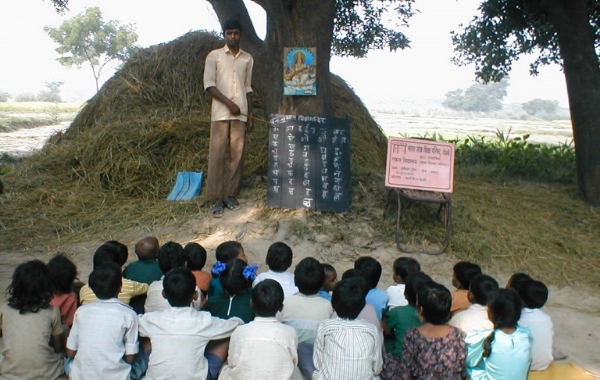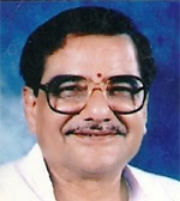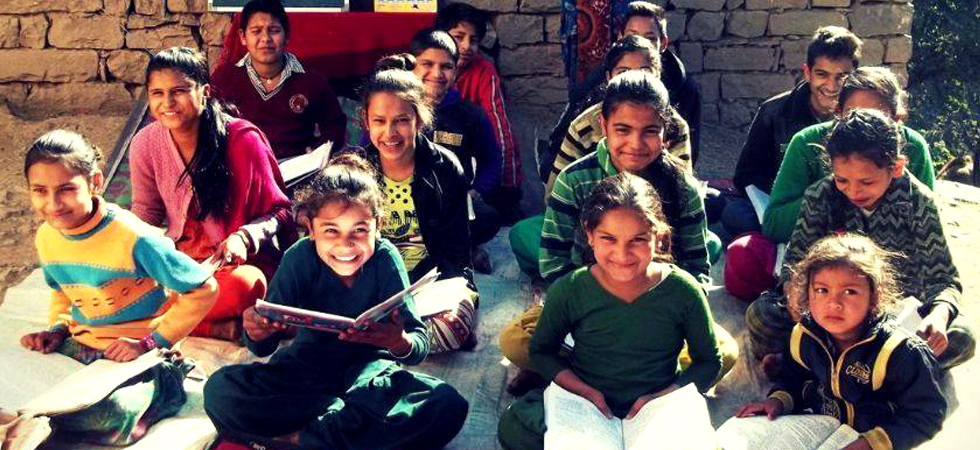Ekal is committed to transforming rural India through education and holistic village development. Active in over 100,000 remote villages, we deliver access to basic literacy, primary healthcare, digital education, women’s empowerment, sustainable agriculture, and vocational training. With the support of more than 400,000 volunteers worldwide, Ekal has brought literacy to over 10 million children, delivered health education and livelihood support to millions of families, and introduced digital literacy programs across thousands of villages.
Our History
Ekal’s story is a story of social dreamers who believe that education can transform lives
-
1980 - The Beginning of Ekal Vidyalaya
In the early 1980s, Dr. Rakesh Popli, a professor of nuclear physics at IIT Kanpur, and his wife, Rama Popli, a primary education specialist, inspired by Mahatma Gandhi’s teaching that advancing the nation is the noblest work; left their positions to improve conditions in rural India.
While visiting rural areas in the Gumla District (now the state of Jharkhand in eastern India), they were moved by lives marked by poverty, gender disparities, and no access to education. Working with like minded activists, the Poplis conducted a study to figure out the region’s greatest needs and concluded that education was the most effective way towards India’s rural development.
-
1986
Incorporating a holistic syllabus of math, science, language, creative arts, and physical education, the first Ekal school was born in 1986, with Rama Popli as its teacher.
-
-
1986 to 1989 - The Growth of Ekal Schools
Ekal, which means unity and strength, was the only educational option for rural children. Although the government had built schools all over India after Independence in 1947, they mostly did not exist in small, remote villages. Further, low-income communities often depended on their children, especially girls, to contribute to the family income and help around the house.
Ekal approached these hurdles head-on. The organization’s leaders connected with rural communities and explained the value of educating children. To accommodate families’ schedules, Ekal schools ran in the afternoon, after household duties were completed. Families whose children attended Ekal schools were encouraged to spread the word.
When famine struck the district of Dhanbad, Jharkhand in 1986, Madanlal Agarwal, the owner of several coal mines in the region, decided to help the community by funding 60 Ekal schools in the region. His support enabled children to attend school cost-free for three years, or until they were old enough to walk to the closest government school. -
1989 - Shyamji Gupta

Shyamji Gupta joined the Ekal team in 1989. A passionate social activist with a talent for recruiting volunteers, he believed strongly in improving conditions in rural India. With Shyamji’s leadership, Agarwal’s fundraising network, and the Poplis’ educational background, Ekal’s core team was complete.
After the first 60 schools were established in Jharkhand with an intent to scale to the neighboring States, Ekal leaders connected with the local village Panchayats to pitch the Ekal model and successfully expanded to the adjacent states of West Bengal and Odisha.
Challenged by hundreds of local dialects, limited road access and vast distances between villages, the Ekal team persevered. To efficiently manage schools, villages were grouped in clusters of 30. Each cluster was managed by a volunteer who could travel between the villages and promote communication between the villages. This operational structure enabled teachers to learn from others in their cohort. -
2000 - Present - Ekal has expanded its reach to 80,000+ schools
As Ekal expanded, three functional teams were created. The first, led by the Poplis, was in charge of developing Ekal’s curriculum and tailoring it to local cultures and dialects. The second, led by Agarwal, worked to maintain a steady flow of funding. A third team, led by Shyamji, monitored school performance and facilitated the sharing of best practices between clusters. By 2000, within 10 years, the number of Ekal schools had grown from 60 to 5,000.
In 2000, an ambitious goal was set to expand the reach of Ekal to 100,000 villages. To attain this goal, Ekal decided to reach out to the global diaspora.
In 2001, Ramesh Shah founded Ekal USA. Over the years, Ekal expanded to 70 chapters across the US, helping achieve 80,000 schools in remote villages in India.
Our Supporters
Ekal Vidyalaya is primarily supported by individual donors, corporate partners through CSR initiatives and from charitable foundations worldwide, making it one of the largest donation-based movements in the world.
At its core, Ekal seeks to build a meaningful connection between urban families and their fellow citizens in rural and tribal areas. This urban–rural bond helps bridge social and economic divides, fostering a shared sense of responsibility and collective nation-building. Ekal’s donor base spans approximately 18 countries, including India, the United States, Canada, Australia, and several Gulf nations.
We invite individual donors, charitable foundations, corporate entities, and government agencies to join us in this transformative movement—empowering the last person in the last village through education and self-reliance.
